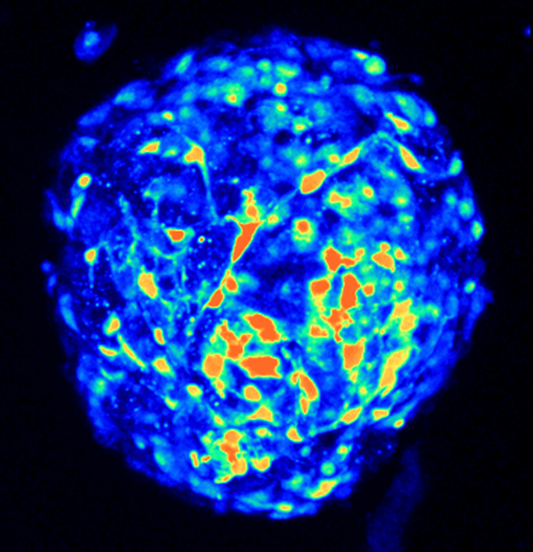DIALAB
DIABESITY
AND
ISLET RESEARCH LAB

Committed to understanding the combined burden of diabetes and obesity
Our laboratory is dedicated to better understanding the pathophysiology of diabetes and related disorders by focusing on the study of risk factors as well as the cellular and molecular mechanisms behind. The ultimate goal is to determine new molecular targets and contribute to develop therapeutic and prevention strategies. Our studies are mainly focused on the pancreatic beta and alpha-cells, but also in other tissues involved in glucose homeostasis.
OUR PRINCIPAL RESEARCH LINES ARE:
Deciphering the mechanisms involved in the etiology of gestational diabetes mellitus (GDM) and its implication in the later development of diabetes:
GDM is the most common metabolic disorder of pregnancy. Its incidence is rapidly increasing all over the world and has become a public health priority issue. GDM is much more than a transient maternal hyperglycaemia occurring during pregnancy. It predisposes the mother and the offspring, both male and female, for increased risk of developing type 2 diabetes and obesity in the future. Thus, understanding the mechanisms underlying GDM will contribute to contain existing worldwide diabesity epidemic. Using in vivo and in vitro models we aim to understand the molecular basis of GDM, with particular emphasis on obesity as risk factor, and identify altered signaling pathways leading to the development of this disease. Furthermore, we aim to explore potential therapeutic tools which may present beneficial effects in the prevention and control of GDM.
Understanding the role of metabolism-disrupting chemicals in the occurrence of metabolic disorders:
Endocrine-disrupting chemicals (EDCs) are chemical substances that can interfere with the normal function of the endocrine system. EDCs are ubiquitous and can be found in a variety of consumer products such as food packaging materials, personal care and household products, plastic additives, and flame retardants. Among them, a subset called metabolism-disrupting chemicals (MDCs) has been largely acknowledged to increase the incidence of metabolic disorders including diabetes, obesity and metabolic syndrome, among others. We study how exposure to MDCs may affect the molecular and cellular processes of the endocrine pancreas. In addition, we work to develop new and effective methods to identify EDCs with diabetogenic, obesogenic or diabesogenic effects. This will contribute to implement new testing approaches in line with the regulatory needs.



